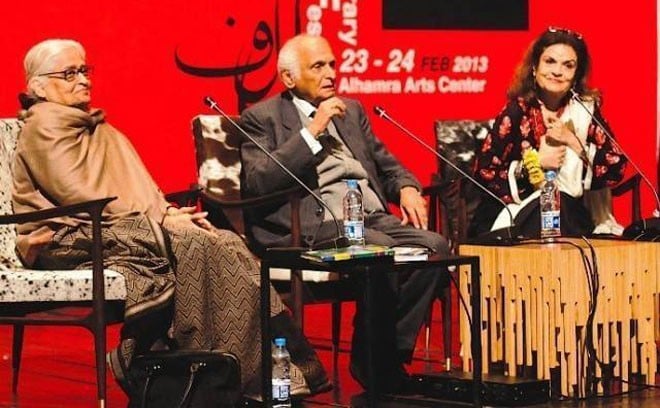
Though hard to pinpoint, there are many reasons that draw people to the literary festivals, such as…

There may be very few of these ‘branded’ literary festivals in my city that I have missed in the last five to six years. I was lured into attending the first one amid the usual February drizzle and liked it so much that I’ve gone back every time.
Now that the festivals have multiplied, and we have many more beginning in November and lasting till February or March, my excitement still hasn’t waned. The more the merrier I keep telling myself.
I have heard the elitism argument often and experienced it too but so have the organisers. They have diversified the content, language and audience every time, trying to make it more inclusive. Other festivals that jumped in later with their new ideas (khayal) and thinking tried to address the critique on earlier ones but ended up generating some criticism on their own work.
I find all this healthy because it ultimately benefits the audience of these festivals or people like me. But who are people like me, I really don’t know. I can only speak for myself. It must have been the printed programme handed down to me the first time and the well-managed sessions in different halls of Alhamra that made me like it so much. In a city not too known for its punctuality, this was a new standard being set.
I must have liked it for other reasons. There was no ticket which was of course one worry less. Of the impressive lineup in the programme, I could choose my favourite session and go sit there unnoticed, in a crowd, at the back or the front.
Live performances of all kinds on stage have always moved me immensely, and that’s how I see the literati, weaving magic with their words and wit. I still recall listening to Nadeem Aslam, eyes and mouth wide open, narrate his experience of how he rehearsed before creating a blind man’s character for his new novel. You have to be a performer to qualify as a speaker in a literary festival is what I have discovered after so many years. I secretly know this is a test that many a good writer cannot pass. And vice versa.
Read also: Beyond the class divide
But this is not to suggest there isn’t that exchange of ideas that you went looking for. At these festivals, I have been introduced to new though old writers and forms I knew nothing about. It’s a heady feeling as Shoba De in her glittery sharara flutters past you, or to spot Mohammed Hanif recline against the brick wall taking a puff, or just being a part of a packed Hall 1, listening to Vikram Seth speak of music instead of written words. What can be more unreal than getting hold of Basharat Peer to ask how on earth did Haider pass through the censor’s
Some of my friends tell me the real fun is outside while I remain a stickler for ‘sessions’ and come out only when I can’t handle them no more. Outside is socialising, food and ‘networking’ opportunities for new writers. And of course the books, to be sold and bought and signed by authors, which is actually why the whole show is set up. I remember getting one or two books signed at the festivals but could not get hold of the authors for the rest.
In the city where I live, it is usually Alhamra Cultural Complex where the first and many subsequent festivals have been, and where they should ideally be, held. It was at a literary festival that I first marvelled at the facility we have in our midst, which can accommodate such a huge load without much ado. In the last two years, when at least one literary festival was disallowed to use this premises, I realised even more how much the place means for the cultural life of this city.
I am aware of this all being castigated as a ‘niche’ activity enjoyed by a ‘like-minded’ crowd which is not even thinking of how it is commodifying literature and how the corporate world and foreign embassies have captured culture by instituting awards for books and authors. I also know these festivals are pitched against other literature conferences organised by government bodies and book fairs to make certain points.
These may all be valid criticisms that ought to be taken into account. But I feel there is nothing that can stop these festivals from happening or people from attending them. They are happening all across the world, new ones being born in new cities, always bearing the stamp of a city and adding to the cultural and intellectual life of that city.
At the back of my mind, there is this assumption is that a literary festival is an interlude between two reading states -- people read, come to the festival, and go back to reading. Because writing remains bigger than the writer.